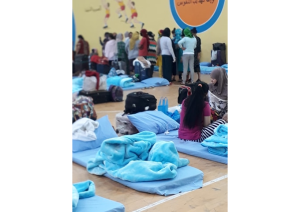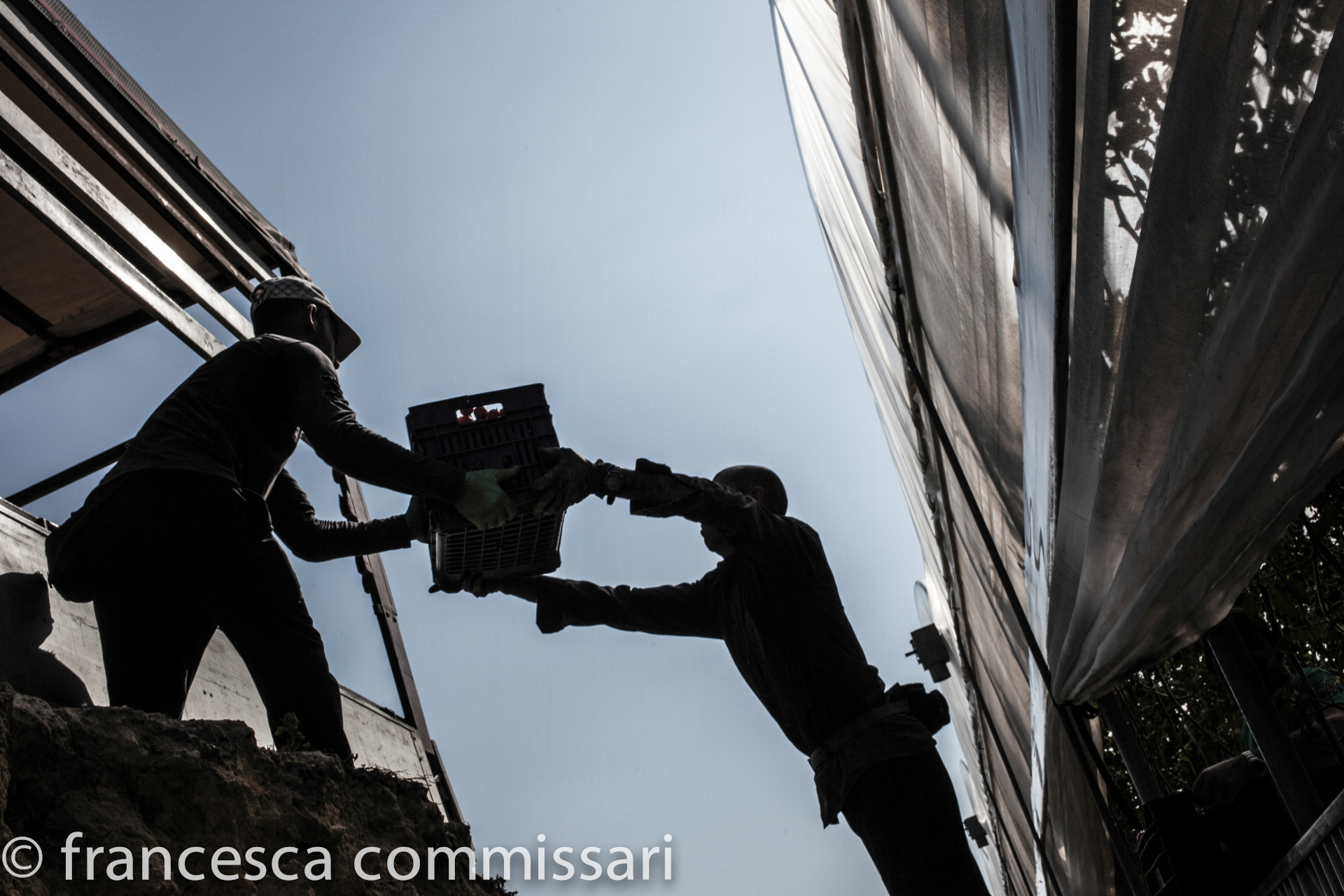
Read more
Blog, Mobility Practices and Processes
COVID-19 and Reverse Migration in Nepal
COVID-19 has revealed pre-existing fault-lines in the recruitment, employment and living conditions of Nepali migrant workers abroad. Now faced with their unprecedented return to Nepal, the challenges of repatriation and reintegration are immense while...
Since Covid-19 hit Italy, regularisation for undocumented migrants was seen as important not only to protect migrant workers’ rights but also to counter their vulnerability to contagion. Regularisation agreed in May 2020 is a step forward, but it contains significant inadequacies, leaving out of its scope many migrants in conditions of irregularity and precariousness. This blog argues that regularisation should cover all migrant workers, irrespective of their role in the labour market while it is itself a shorter-term fix that does not provide longer-term solutions to the exploitation of migrants.
Regularisation was initially proposed for irregular migrant farmworkers. National farmers’ organisations sounded the alarm about labour shortages, especially for East European workers (mainly Romanians, Poles and Bulgarians), who constitute a significant component of the migrant labour force in the agri-food sector.
In addition to Eastern European migrant workers, the demand for low wage and exploitable labour in agriculture has also been met by non-EU migrants, including asylum seekers and undocumented migrants.
Lockdown prevented many of these migrant farmworkers, especially those without a residence permit or a regular contract, from looking for work.
Particularly in the south, thousands of migrant workers have been stuck in makeshift encampments living without basic protections against Covid-19.
Trade unions, NGOs and workers themselves have called for regularisation of undocumented migrants, claiming this to be a social justice measure while also ensuring that migrants would have access to healthcare.
After weeks of intense debate with some misgivings within the governing coalition and opposition from the far right Lega and Fratelli D’Italia parties, a plan to regularise undocumented migrants was adopted. This provision, entitled ‘Emergence of Employment Relationships’, was included in the Decree approved by the Italian government on May 13, 2020, for a post-pandemic economic relaunch.
Emergence of undeclared work and temporary residence permits to look for jobs
The provision aims to ‘ensure adequate levels of individual and collective health protection’ as a consequence of the health emergency, and to ‘facilitate the emergence of irregular employment relationships’, applying only to specific sectors: agriculture, livestock, animal husbandry, fisheries, aquaculture and related activities, and care and domestic work.
It aims to cover all those doing undeclared work, including, undocumented foreign workers, but also Italian citizens, EU migrants and regular non-EU migrants.
The provision establishes two channels. Applications for both channels must be submitted between June 1 and July 15 2020.
The first channel allows employers to apply to conclude a fixed-term employment contract with foreign nationals present on the national territory or to declare the existence of an irregular employment relationship with Italian citizens or foreign nationals. Foreign citizens must have been present in Italy before 8 March 2020 and must not have left the country since that date. If they are undocumented migrants, they will receive a residence permit for work reasons.
The second channel allows foreign citizens, with a residence permit that expired since October 31 2019 to apply for a temporary residence permit lasting six months to look for a job in the specified sectors. To apply, migrants must have been present in Italy on 8 March 2020, and must be able to prove they worked in one of the eligible sectors before 31 October 2019. If within six months the person finds a job in one of these sectors, the temporary permit can be converted into a residence permit for work reasons.
In both channels, if the employment relationship terminates, even in the case of a seasonal contract, foreign nationals have the possibility to apply for a one-year residence permit while ‘awaiting employment’.
Limits, exclusions and risks
Given the Italian government’s hesitant and restrictive approach to migration, this regularisation could be considered a step forward. But there are significant inadequacies that affect its impact, probably resulting in a limited number of regularised migrants.
First, there is no guarantee that, in the absence of substantial incentives, many employers will be persuaded to regularise an employment relationship. The Decree does suspend some ongoing criminal and administrative proceedings against employers, but may not be sufficient to convince employers that find it more convenient to use undeclared workers.
Second, a temporary residence permit to look for work, as established in the second channel of the plan, is a relative novelty for the Italian legal system, which since the adoption of the 2002 Bossi-Fini law has closely linked residence permits to the existence of a labour contract, and channelled foreign workers into a cumbersome and inadequate entry mechanism.
However, the conditions required to apply for the six months residence permit to look for jobs significantly limit its scope, leaving out numerous migrants in conditions of irregularity and precariousness, including many of those affected by the so-called ‘Salvini Decrees’. Moreover, by requiring people to prove, through appropriate official documents, that they have worked in one of eligible sectors, the provision excludes all migrants who have worked in undeclared conditions in these sectors. This is paradoxical for a measure aiming to address irregular work.
Probably many of the migrants excluded from the second channel will search for someone who can offer an employment contract to access the first path of the plan, but with clear potential for abusive practices such as sale of contracts and blackmail.
As in the past, the lump sum cost (€500) for employers could be offloaded onto the workers, as a hidden contribution for the benefit received in regularisation.
Third, by applying only to the agri-food and domestic/care sectors, the plan overlooks sectors such as logistics, construction, tourism and food services that also have high rates of undeclared work, including by migrants in irregular and exploitative conditions. The decision to cover only some sectors highlights the economic and labour market logic behind this regularisation.
Taking exploitation seriously
On May 21 2020, hundreds of migrant farmworkers went on strike against the adopted plan for regularisation and for the strengthening of their rights. Nine days later, migrants again went on strike to claim an unconditional and unlimited European residence permit, that is not linked to family status, income and employment.
These actions highlighted the need to overhaul a broken and unfair system that relies on labour exploitation, by taking advantage of – and simultaneously producing – the conditions of vulnerability of workers, especially migrant workers.
Temporary and selective regularisation cannot be the only response, and above all it is not enough to prevent and combat the exploitation of migrant workers. While regularisation should cover all migrants, a profound change of current Italian migration policies is fundamental to develop safe and legal entry routes, and to remove the link between the residence permit and the labour contract, which is a driving factor in exploitation and abuse.
At the same time, as conditions of vulnerability are not only created by undocumented status but stem from poverty, social exclusion and discrimination – which are also endemic for EU citizens and Italian nationals – prevention of exploitation requires structural interventions to strengthen wages and labour rights, ensure decent living conditions, and develop structured welfare services.
For the agri-food system, new actions to bolster alternative agri-food chains that can guarantee fair working conditions and ecological sustainability are now clearly necessary.
Such interventions can no longer be postponed to face the current COVID-19 crisis with a long-term vision that addresses the problem of exploitation and economic and social inequalities as decisive issues for building a more supportive and fairer society, and as a lever for the growth and relaunch of key sectors.
Letizia Palumbo Research Fellow, Migration Policy Centre, EUI
The EUI, RSCAS and MPC are not responsible for the opinion expressed by the author(s). Furthermore, the views expressed in this publication cannot in any circumstances be regarded as the official position of the European Union.

